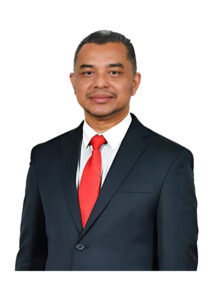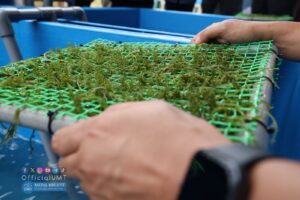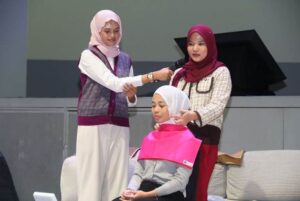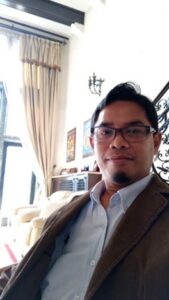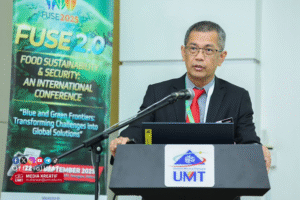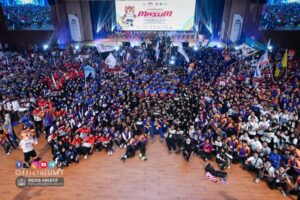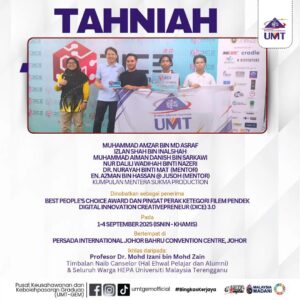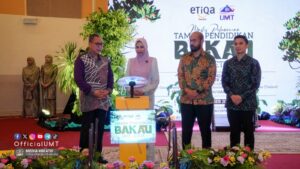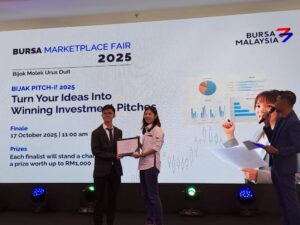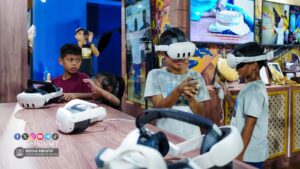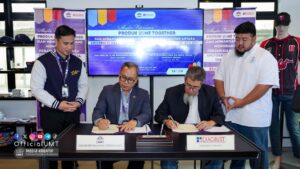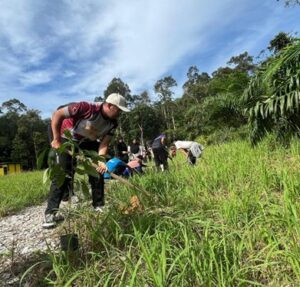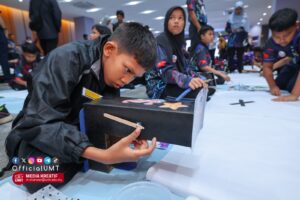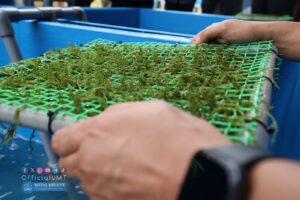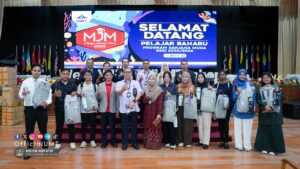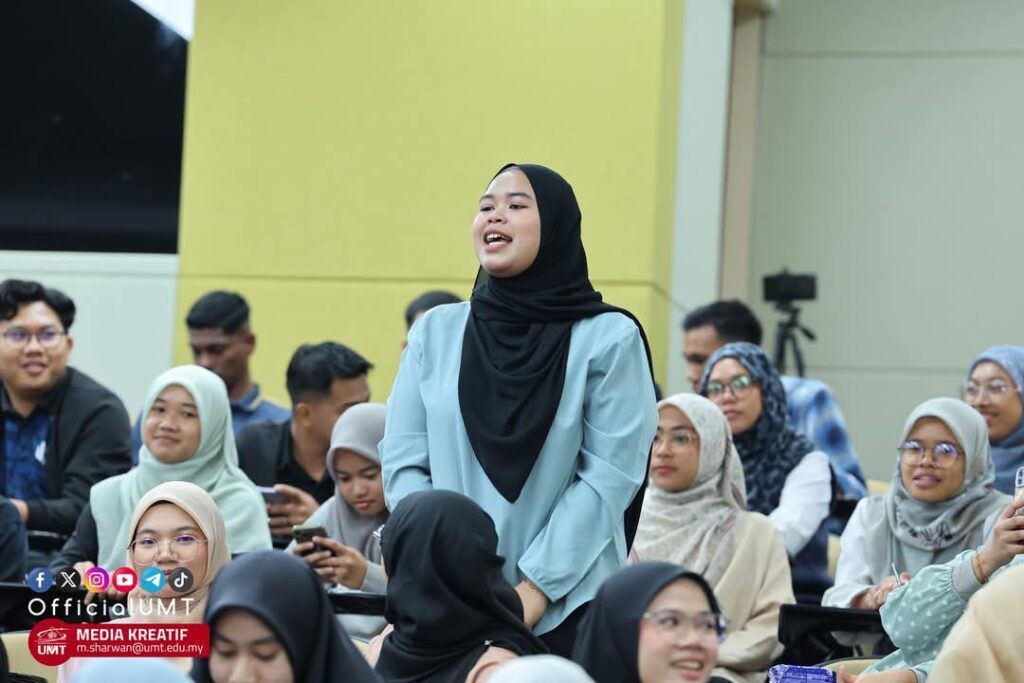
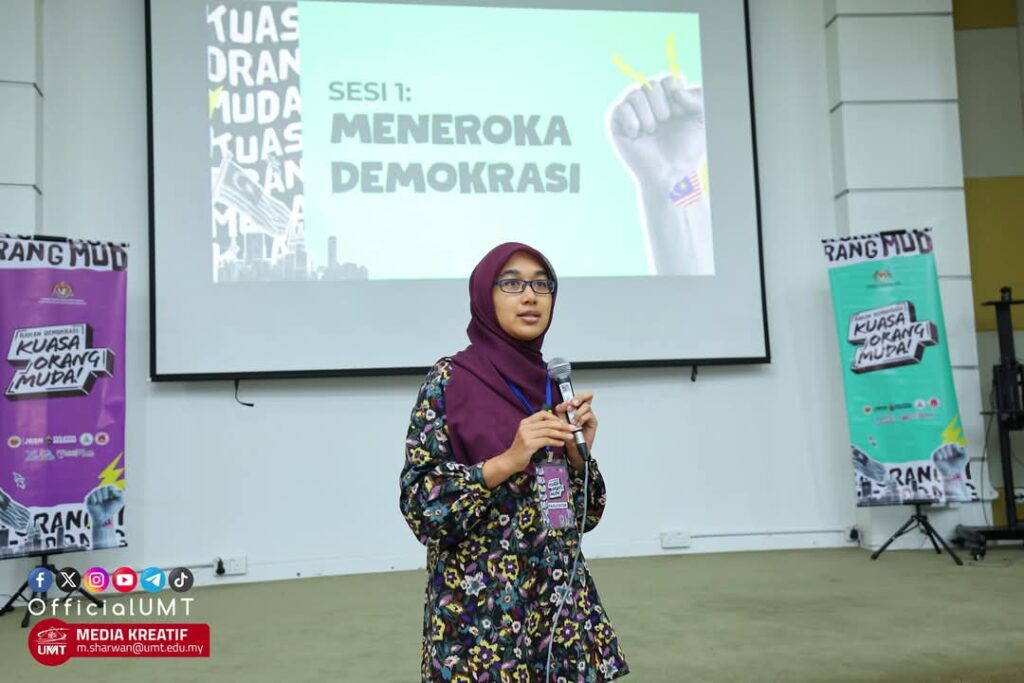
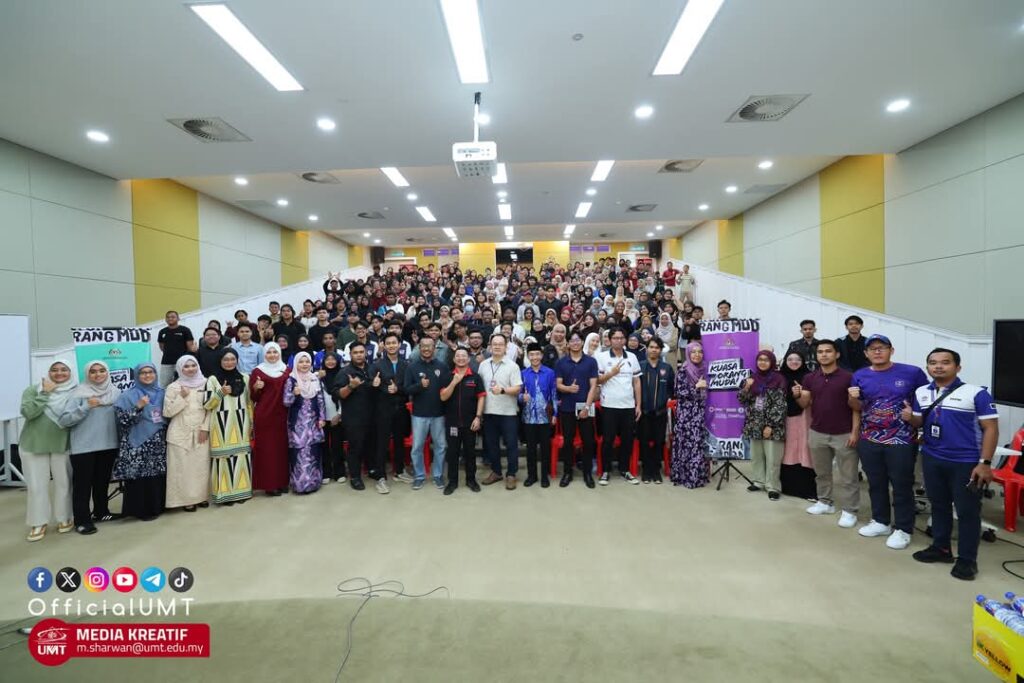
FRIENDS OF DEMOCRACY: POWER OF YOUTH PROGRAMME TEACHES STUDENTS ABOUT IMPORTANCE OF DEMOCRACY
Sunday, 26/01/2025
Share This Article :
Kuala Nerus, 10 January 2025 – A total of 230 Universiti Malaysia Terengganu (UMT) students have attended the Friends of Democracy: Power of Youth Programme for Eastern Zone (Terengganu) 2025 at Conference Hall 2, UMTCC, UMT recently. The programme was organized by the Ministry of Youth and Sports in collaboration with Pertubuhan Nusa Bangsa (NUSA); Department of Nationhood and Civilization, UMT; Faculty of Human Ecology, Universiti Putra Malaysia; and the Office of Student Affairs and Alumni (HEPA), UMT.
The programme was aimed at increasing the commitment of the youths to become citizens who are active, caring, and holistic through political education. Participants were supplied with the knowledge and skills needed to involve themselves effectively in democracy process and decison-making. The workshop was conducted to expose students to various aspects of democracy, including the democracy concept, election process, and the roles of youths in positively impacting the democracy system.
Other activities held included Power of Youth e-Learning, social media campaign, educational workshop, and participation in the Street Team. These activities were organized to ensure participants would gain a comprehensive and practical educational experience.
UMT Deputy Vice Chancellor (Student Affairs and Alumni) Professor Dr. Mohd Izani Mohd Zain said the programme is in line with the aspiration of HEPA, which is to expose students to political education. The Political Literacy and Advocacy Unit, or ADVOKASI@UMT, has been set up earlier to organize efforts on political literacy. He added that the programme received support from Nusa Bangsa Secretariat, Centre for Student Development and Empowerment, and UMT Alumni.
One of the participants, Adam Qayyum Rasukhan from the Bachelor of Tourism Management programme, said,”I gained many benefits from this programme. For instance, I learned about the rights and responsibilities as a citizen of the country. I hope the programme can be held on a regular basis at every university to provide exposure to students regarding the system of parliamentary democracy and enable the students to increase their political literacy.”
Another participant, Nur Suriati Ruslan from the Faculty of Fisheries and Food Science, said the programme enabled students and youths to better understand their role in a democracy system. It also provided them the opportunity to sharpen their leadership skills and increase their sense of responsibility towards the community. “Programmes like this can help form a generation that takes a more active role in the country’s affairs, thereby increasing youth involvement in politics and society,” she added.
Clearly the Friends of Democracy programme has proven that efforts to shape active young citizens require cooperation from all parties, including education institutions, government agencies, and non-governmental organizations. Such programme is an effective way to mould youths to become more caring, knowledgeable, responsible, and greater contributors towards the country’s progress.

